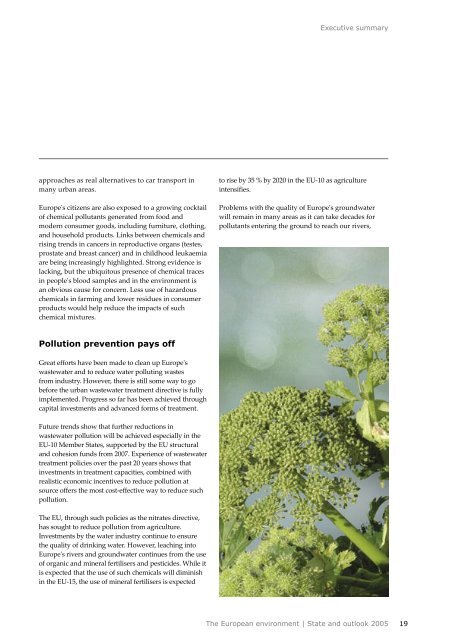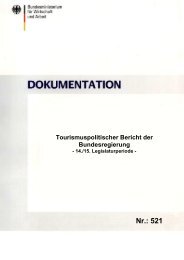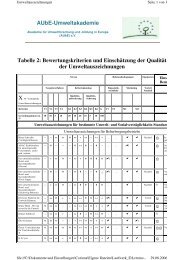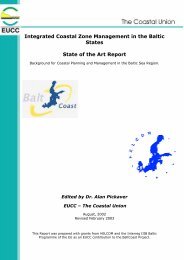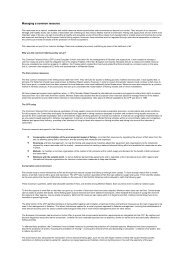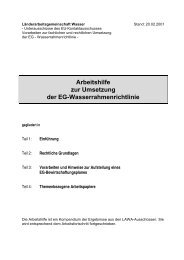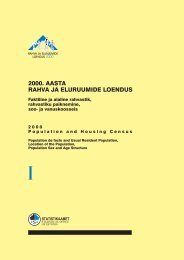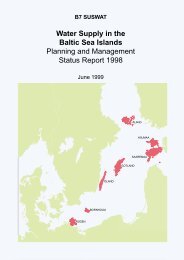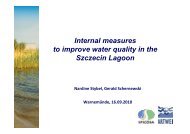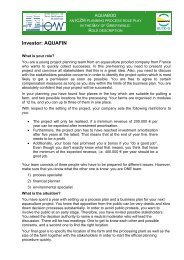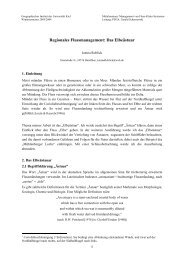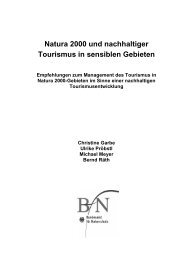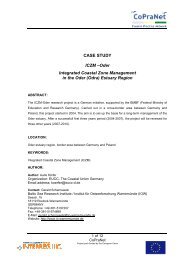The European environment - State and outlook ... - IKZM-D Lernen
The European environment - State and outlook ... - IKZM-D Lernen
The European environment - State and outlook ... - IKZM-D Lernen
Create successful ePaper yourself
Turn your PDF publications into a flip-book with our unique Google optimized e-Paper software.
Executive summary<br />
approaches as real alternatives to car transport in<br />
many urban areas.<br />
Europe's citizens are also exposed to a growing cocktail<br />
of chemical pollutants generated from food <strong>and</strong><br />
modern consumer goods, including furniture, clothing,<br />
<strong>and</strong> household products. Links between chemicals <strong>and</strong><br />
rising trends in cancers in reproductive organs (testes,<br />
prostate <strong>and</strong> breast cancer) <strong>and</strong> in childhood leukaemia<br />
are being increasingly highlighted. Strong evidence is<br />
lacking, but the ubiquitous presence of chemical traces<br />
in people's blood samples <strong>and</strong> in the <strong>environment</strong> is<br />
an obvious cause for concern. Less use of hazardous<br />
chemicals in farming <strong>and</strong> lower residues in consumer<br />
products would help reduce the impacts of such<br />
chemical mixtures.<br />
to rise by 35 % by 2020 in the EU-10 as agriculture<br />
intensifies.<br />
Problems with the quality of Europe's groundwater<br />
will remain in many areas as it can take decades for<br />
pollutants entering the ground to reach our rivers,<br />
Pollution prevention pays off<br />
Great efforts have been made to clean up Europe's<br />
wastewater <strong>and</strong> to reduce water polluting wastes<br />
from industry. However, there is still some way to go<br />
before the urban wastewater treatment directive is fully<br />
implemented. Progress so far has been achieved through<br />
capital investments <strong>and</strong> advanced forms of treatment.<br />
Future trends show that further reductions in<br />
wastewater pollution will be achieved especially in the<br />
EU-10 Member <strong>State</strong>s, supported by the EU structural<br />
<strong>and</strong> cohesion funds from 2007. Experience of wastewater<br />
treatment policies over the past 20 years shows that<br />
investments in treatment capacities, combined with<br />
realistic economic incentives to reduce pollution at<br />
source offers the most cost-effective way to reduce such<br />
pollution.<br />
<strong>The</strong> EU, through such policies as the nitrates directive,<br />
has sought to reduce pollution from agriculture.<br />
Investments by the water industry continue to ensure<br />
the quality of drinking water. However, leaching into<br />
Europe's rivers <strong>and</strong> groundwater continues from the use<br />
of organic <strong>and</strong> mineral fertilisers <strong>and</strong> pesticides. While it<br />
is expected that the use of such chemicals will diminish<br />
in the EU-15, the use of mineral fertilisers is expected<br />
<strong>The</strong> <strong>European</strong> <strong>environment</strong> | <strong>State</strong> <strong>and</strong> <strong>outlook</strong> 2005<br />
19


